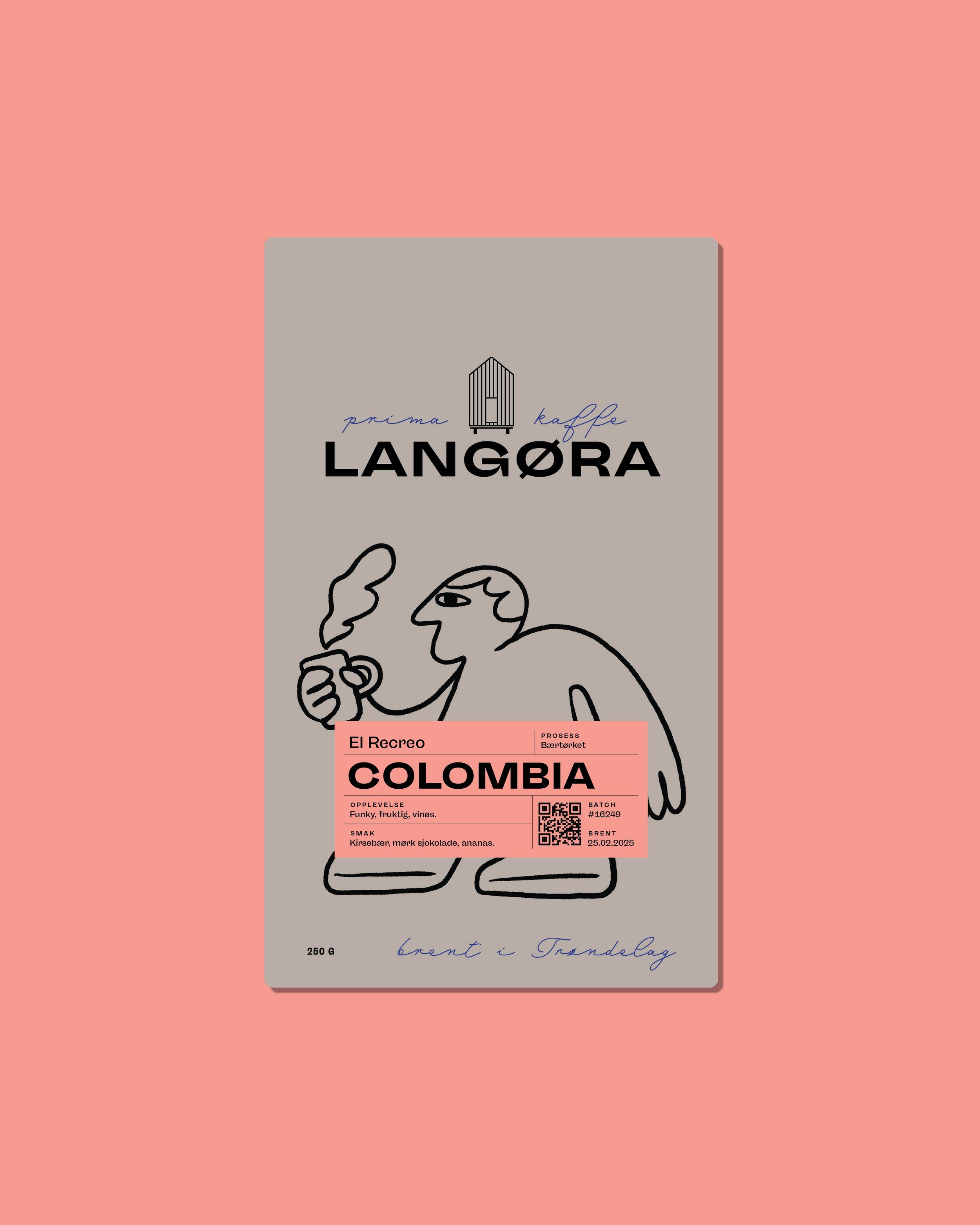Luke 5
Hacienda Colima
COUNTRY: Costa Rica
FARM/COOP/STATION: Hacienda Colima
VARIETAL: Caturra
PROCESSING: Natural
ALTITUDE: 1400 - 1500 m.a.s.l.
OWNER : Alejo Castro Kahle
REGION:Central valley
HARVEST: December - February
FLAVOUR NOTES: Plum, green tea, biscuit, grape jelly, rosehip
ABOUT THE COFFEE
Alejo belongs to a fifth generation of coffee growers. He enjoys experimenting with different varieties and processes, as a result of which he is now able to offer this excellent microlot of natural Caturra produced at his Hacienda Colima farm.
For Alejo Castro, the work done on the farm must be carried out with the utmost care, throughout the year, to ensure a quality harvest.
It's all about ensuring that the soil is properly nourished, and protecting the coffee trees from disease, so that the cherries develop to their full potential.
When Alejo talks about his processes, he insists: his aim is to naturally develop the strengths of each coffee, like this natural caturra
COFFEE IN COSTA RICA
Coffee has been a central part of the Costa Rican experience since the country’s independence from Spain in 1821. At that time, the new government led a campaign to distribute free coffee seeds to citizens in order to promote coffee production as a cash crop. Costa Rica was soon exporting green coffee beans all over Central and South America.
Just two decades later, in 1843, Costa Rica sent its first shipment of green coffee beans to England. By 1860, Costa Rica was also supplying coffee to the United States. Coffee played such a big role in Costa Rican production that coffee was Costa Rica’s only export for the years starting from independence until 1890.
Costa Rican coffee farmers experience significant barriers to production. Production costs in the country tend to be very high in comparison to neighboring countries. The persistent growth of the tourist industry, combined with the influx of foreign businesses bringing more money into Costa Rica, has created inflation. While inflation and the rising quality of life have had many positive benefits for Costa Ricans, rural areas have struggled to keep up with increasing land and input prices and the associated higher labor costs. As a result, Costa Rican coffee tends to be on the expensive side.
Especially because costs are higher, Costa Rican coffee producers must find other ways to stand out from all the other producing countries in the Americas. Luckily for the specialty coffee industry, Costa Rica has had great success becoming a frontrunner in quality specialty coffees and processing methods.
In areas like Tarrazú, where conditions are ideal for coffee growing, competition is even higher. In such areas, the competitive atmosphere leads many producers to invest in private micro mills, growing exotic varieties and alternative processing.
The focus Costa Rican farmers place on increased coffee quality is beneficial to both themselves and the specialty industry as whole. An atmosphere that encourages experimentation and innovation can breed any number of new or better varieties, growing techniques, processing methods, storage protocols and more.
Costa Rica has also become a world leader in traceability and sustainability in coffee production. Ninety percent of the country’s 50,000 coffee farmers are smallholders, and today, many deliver their cherry to boutique micro-mills that often process cherries according to producer specs to retain single-lot or single-farm qualities.
The rise of micro-mill processing, in itself, is a relatively recent development. Prior to the early 2000s it was common for smaller producers to deliver their cherry to cooperative-owned mills. As lucrative specialty markets developed, more and more farmers began establishing mills on their own farms, giving them increased control over processing and more assurance of the ‘traceability story’ so important to the growing market segment. Mills with excess capacity would then offer their services to neighboring farmers, offering a range of processing methods for small lots along with full traceability for roasters and importers. The system has enabled Costa Rica’s small to mid-sized coffee farmers to offer a wide range of differentiated products. Today, specialty lots from Costa Rica are almost as likely to bear the name of the micro-mill where they were processed as that of the producing farm.
The typically uncertain and dry weather patterns in Costa Rica make coffee farming more difficult. Long dry seasons and unpredictable weather patterns have virtually eliminated the possibility of organic farming. Nonetheless, both the government and farmers have taken active steps to protect the environment. Some of these restrictions also inform the processing methods for which Costa Rican coffee has become known.
In particular, the government is very strict about water usage and pollution. There are stringent filtration requirements for wastewater. Because filtration systems that are up-to-code to are so expensive, standard Fully washed coffees are not widely produced. Most mills that do produce washed coffees use centrifugal force instead of water to remove mucilage.













